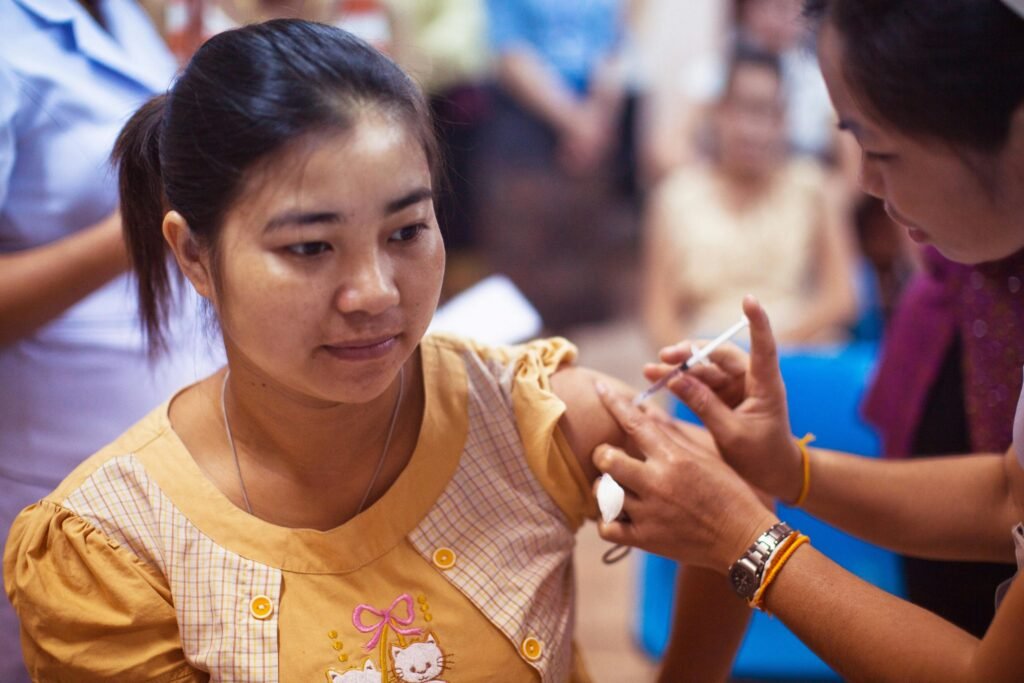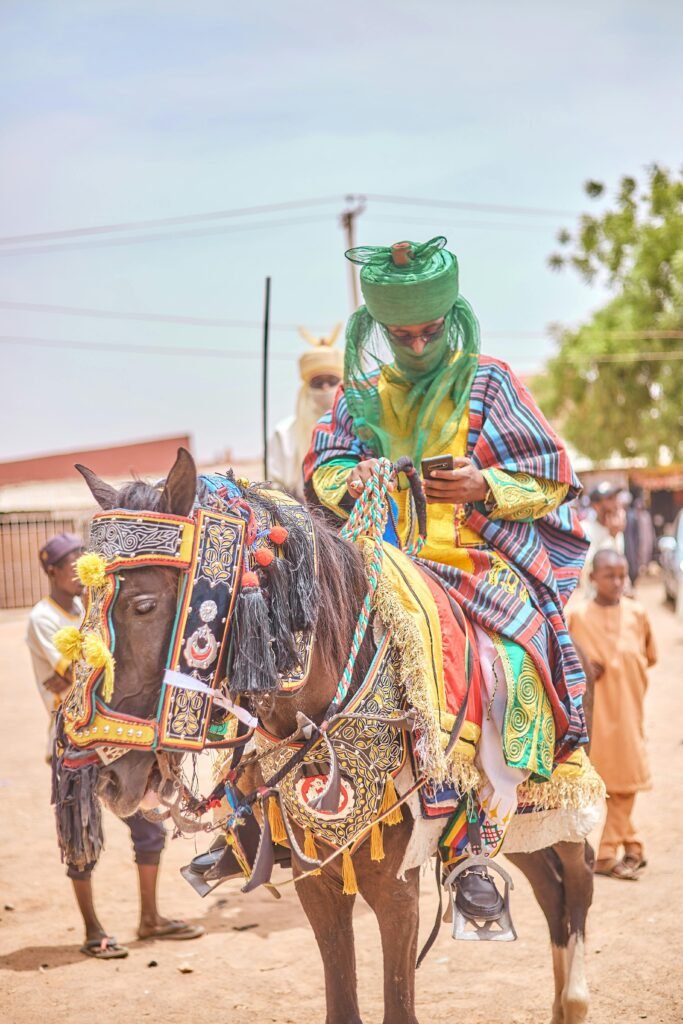Introduction to Traveling in Africa
Africa is a continent renowned for its breathtaking diversity, featuring an array of landscapes, cultures, and experiences that captivate travelers from all over the globe. From the majestic Sahara Desert to the lush rainforests of the Congo, and the vibrant cities of Cape Town and Nairobi, Africa offers an unparalleled range of sights and adventures. Each country within Africa boasts its own unique heritage, traditions, and culinary delights, making it an alluring destination for those seeking to explore new horizons.

However, despite its many attractions, traveling in Africa can present challenges, particularly for first-time visitors. Safety is a paramount concern, as travelers must be aware of their surroundings and take the necessary precautions to ensure a secure journey. Understanding the local customs, political climates, and health considerations is crucial for anyone venturing into this diverse continent. Every region has its own set of guidelines and recommendations that can greatly enhance the experience while minimizing risk.
As a first-time traveler in Africa, it is essential to have well-informed strategies in place. This includes selecting safe destinations, utilizing reliable transportation options, and adhering to health precautions. By equipping oneself with knowledge and practical advice, travelers can savor the unique experiences that Africa has to offer while prioritizing their safety.
Throughout this guide, we will delve into the critical aspects of traveling across Africa, offering insights and tips on transportation, health precautions, and the best practices for choosing safe destinations. Each section aims to provide a comprehensive overview that empowers travelers to embrace the beauty and rich culture of Africa while ensuring a secure and enjoyable journey.
Understanding Transportation Options
Traveling across Africa presents a diverse array of transportation options that cater to a variety of preferences and budgets. This guide outlines the most common methods, examining their respective advantages and drawbacks, while emphasizing the essential safety measures travelers should observe.
Local buses, known as ‘matatus’ in East Africa, are a prevalent mode of transportation and are often the most affordable. They allow travelers to experience local culture, but they can also be crowded and uncomfortable. It is advisable to opt for official bus companies with a reputation for reliability and safety. Look for options that provide seat belts and adhere to passenger limits to enhance safety during the journey.
Taxis are another convenient option, and they vary by location. In urban areas, you may find traditional taxis which can be flagged down or booked via phone. However, it is crucial to ensure the taxi’s meter is operating correctly, or agree on a fare beforehand to avoid potential disputes. In cities like Cape Town or Nairobi, ride-sharing apps like Uber and Bolt offer a safer alternative, providing clear driver identification and vehicle information that adds a layer of security during travel.

For longer distances, internal flights are a practical choice given Africa’s vastness. Airlines such as South African Airways and Kenya Airways offer various routes that can save significant travel time. Although flying is generally safe, travelers should check the airline’s safety record before booking. Depending on the area, it is also prudent to remain vigilant at airports and adhere to luggage security guidelines.
Overall, when navigating these transportation methods, always prioritize safety by using licensed services, staying aware of your surroundings, and avoiding travel during nighttime hours in unfamiliar areas. By following these best practices, travelers can enjoy a safe and enriching journey across the continent.
Choosing Safe Destinations
Selecting safe destinations within Africa is an essential aspect for any traveler eager to explore the continent. Begin your research by identifying countries and cities renowned for their tourism infrastructure and safety records. Many resources exist online, including travel forums, official tourism websites, and blogs from seasoned travelers, which provide valuable insights into safe travel routes and attractions. Countries such as Kenya, South Africa, Tanzania, and Botswana have varying tourism opportunities and established safety measures for visitors.
Moreover, consulting the travel advisories issued by your government can offer critical information regarding the political situation, health risks, and security concerns in specific areas. Many governments issue regular advisories that highlight regions of interest or caution, which can serve as an excellent guide when planning your route. Additionally, considering the seasons when traveling can also enhance safety; some regions may experience unrest during specific times of the year, whereas others might be more welcoming.
Engaging with fellow travelers can provide a wealth of knowledge. Platforms like social media groups, travel forums, or apps specifically designed for travel networking offer the chance to connect with individuals who have recently visited the destination of interest. They can share up-to-date experiences and advice on what to expect regarding safety, as well as recommendations on neighborhoods to stay in, local customs, and areas to avoid.
Lastly, it is beneficial to stay informed about current events in your chosen destination. By doing so, you can adjust your travel plans accordingly and remain flexible. This proactive approach will help ensure a safer and more enriching travel experience across Africa, allowing you to fully enjoy the continent’s diverse culture and breathtaking landscapes without compromising on safety.
Health Precautions and Vaccinations
Traveling across Africa presents unique health challenges that require careful planning and preparation. Before setting out, it is important to consult with a healthcare professional who specializes in travel medicine. They can provide tailored advice and recommend necessary vaccinations based on your travel itinerary and personal health history. Common vaccinations that travelers often require include those for Yellow Fever, Hepatitis A and B, Typhoid, and Tetanus. It’s crucial to schedule these vaccinations well in advance, as some may require multiple doses over a period of time.

Malaria is endemic in many regions of Africa; therefore, travelers are advised to take preventive medications such as antimalarials like doxycycline, mefloquine, or atovaquone-proguanil. These medications are most effective when started before departure and continued for a specified duration after returning home. In addition to medication, it is advisable to employ mosquito bite prevention strategies such as wearing long-sleeved clothing, using insect repellent with DEET, and sleeping under mosquito netting when necessary.
Personal hygiene practices play a vital role in maintaining health while traveling. It is advisable to wash hands frequently with soap and water, and to use hand sanitizer when washing is not an option. When consuming food and beverages, stick to bottled water and avoid ice unless it is known to be made from purified water. It is also prudent to eat well-cooked meals and be cautious of street food or food that has been sitting out for long periods.
By taking the necessary health precautions and vaccinations, travelers can significantly reduce their risk of illness while exploring the diverse landscapes of Africa. Preparing adequately will not only enhance the overall travel experience but also contribute to a safer journey across the continent.
Staying Connected: Communication Tips
Staying connected while traveling across Africa is essential, not only for navigation but also for safety and accessing crucial information. When it comes to communication options, travelers have several choices that can keep them informed and connected with friends and family back home. One of the most efficient and cost-effective ways to stay connected is by using a local SIM card. Most African countries offer a variety of prepaid SIM options, allowing travelers to benefit from local rates on calls and data plans. It is advisable to purchase a SIM card upon arrival at the airport or from authorized vendors to avoid potential connectivity issues.
If opting for international roaming, travelers should check with their home mobile network about the availability of service in their destination. Although this may offer convenience, it often comes at a higher cost. It is essential to weigh the pros and cons of international roaming based on your travel plan duration and data usage needs. Keep in mind that rural areas may have limited mobile coverage, so relying solely on this option may not be practical, particularly in remote regions.
Wi-Fi availability in urban areas can also provide an alternative method for staying connected. Many hotels, cafes, and public places offer free Wi-Fi services, allowing travelers to communicate without incurring additional costs. However, it is crucial to prioritize personal safety when using public Wi-Fi networks. Consider employing a virtual private network (VPN) to secure your internet activity and protect sensitive information.
Overall, being mindful of the communication options available while traveling in Africa can significantly enhance your experience. By carefully selecting the best methods to stay connected, you can enjoy a safer and more enjoyable journey through this diverse continent.
Cultural Sensitivity and Local Etiquette
Traveling across Africa offers a rich tapestry of cultures, languages, and customs that can greatly enhance your journey. However, understanding and respecting the cultural practices of the various nations is paramount for a smooth and enjoyable experience. Each region has its unique social norms, and being culturally sensitive not only facilitates interaction but also shows respect for the local heritage.
One of the first aspects to consider is appropriate dress codes. In many African countries, modesty is valued, particularly in rural areas. It is advisable for both men and women to wear clothing that covers the shoulders and knees, especially when visiting religious sites or local communities. This adherence to local dress codes not only respects the customs but also allows travelers to engage more positively with locals.
Greetings vary significantly across different cultures in Africa. A simple “hello” may not suffice; many communities place great importance on greetings as a sign of respect. For instance, in some regions, a handshake accompanied by a respectful nod is common, while in others, more formal greetings may be expected. Engaging in verbal exchanges—such as asking about one’s well-being—demonstrates cultural sensitivity and can pave the way for meaningful interactions.
Travelers should also familiarize themselves with local traditions and customs, as they can differ widely even within the same country. For example, certain gestures or actions that may be acceptable in one culture can be deemed offensive in another. Learning about taboos and customary practices will not only prevent unintentional offenses but also enrich one’s understanding of the local lifestyle.
In conclusion, cultivating cultural sensitivity and understanding local etiquette is essential when traveling across Africa. By respecting the customs and traditions of each region, travelers can foster positive relationships and create lasting memories during their journey. Embracing these practices ensures both enjoyable and safe interactions with diverse communities throughout the continent.

Safety Tips for Travelers
Traveling across Africa can be a rewarding experience, yet it also presents unique safety challenges. To ensure a secure journey, it is imperative for travelers to remain vigilant and informed about their surroundings. One of the primary safety tips is to avoid risky areas, particularly after dark. It is advisable to conduct thorough research on the destinations being visited, paying attention to travel advisories issued by government agencies. Areas known for high crime rates or civil unrest should be avoided whenever possible.
Another crucial aspect to consider is the safeguarding of personal belongings. Travelers are encouraged to minimize the amount of cash they carry and to use secure bags to protect their valuables. Utilizing hotel safes for storing passports, electronics, and other important items is a strategical choice. Additionally, it is wise to blend in with the local culture by avoiding clothing or accessories that may designate a traveler as a tourist. This lowers the chances of becoming a target for theft.
Trusting one’s instincts is vital for maintaining personal safety. If a situation does not feel right, it is advisable to leave promptly or seek assistance if needed. Staying alert while in public places, such as markets or public transportation, helps maintain awareness of one’s environment. Furthermore, travelers should keep a list of emergency contacts, including local authorities, healthcare facilities, and one’s country’s embassy or consulate. This list should be easily accessible, such as in a phone app or on a piece of paper in a wallet.
By following these safety tips, travelers can enhance their security while exploring the diverse landscapes and cultures across Africa. Remaining cautious and prepared can significantly contribute to a positive travel experience.
Emergency Preparedness and Travel Insurance
When traveling across Africa, it is crucial to be prepared for any potential emergencies that may arise. Emergencies can occur unexpectedly, so having a solid emergency plan and travel insurance can make all the difference. Travel insurance serves as a safety net, providing protection against a variety of issues, including health emergencies, trip cancellations, and theft. Before commencing your journey, review different types of travel insurance policies, focusing on those that specifically cover medical expenses, emergency evacuations, and coverage for lost or stolen belongings.
One essential component of emergency preparedness is creating a comprehensive emergency plan. This plan should be customized based on your travel itinerary and the destinations you plan to visit. Start by identifying and documenting the locations of local hospitals and clinics in each area. Familiarizing yourself with emergency contact numbers and procedures can significantly expedite assistance in case of an incident. Consider establishing a communication plan that designates how you will maintain contact with family or friends back home, providing them with a sense of security regarding your well-being.
In addition to listing essential health facilities, retaining copies of important documents is vital. This includes your passport, travel insurance policy, and any necessary medical records. Keep these documents in both physical and digital formats to ensure availability during emergencies. Furthermore, informing someone you trust about your travel plans can help in coordinating assistance should emergency situations arise.
By integrating travel insurance into your trip and proactively preparing an emergency plan, you can travel across Africa with greater confidence. Understanding what you can do to respond to unforeseen circumstances will enhance your overall travel experience while prioritizing your safety and well-being throughout your journey.
Conclusion: Embracing Your Adventure
Traveling across Africa can be one of the most enriching experiences of a lifetime, offering a unique opportunity to explore the continent’s diverse cultures, breathtaking landscapes, and vibrant communities. However, it is essential to approach this adventure with careful consideration and an emphasis on safety. By observing the necessary precautions, travelers can immerse themselves in the beauty of Africa while minimizing risks.
Preparation is vital when planning a journey across Africa. This includes researching the various countries and regions, understanding their specific cultural practices, and staying informed about the local customs. An informed traveler not only respects the destinations visited but also enhances their overall experience. Each region boasts its own set of attractions, from sprawling savannas and majestic mountains to bustling urban centers and tranquil beaches. Embracing this diversity can lead to unforgettable memories.
Awareness is another key component of a safe and fulfilling travel experience. This means being conscious of potential health risks, staying updated on travel advisories, and understanding local transportation dynamics. Familiarizing oneself with the terrain and the options available can ensure smooth transitions between destinations. Moreover, accepting that unexpected situations may arise and maintaining adaptability will contribute to the overall enjoyment of the journey.
Finally, embracing an open mind allows travelers to fully connect with the local culture. Engaging with locals and trying new experiences can create lasting connections and foster a deeper appreciation for the continent. By prioritizing safety and preparation, travelers can embark on an extraordinary adventure, discovering the rich tapestry of Africa’s heritage and landscapes. Africa awaits, promising a lifetime of stories and experiences for those willing to explore its wonders responsibly.






